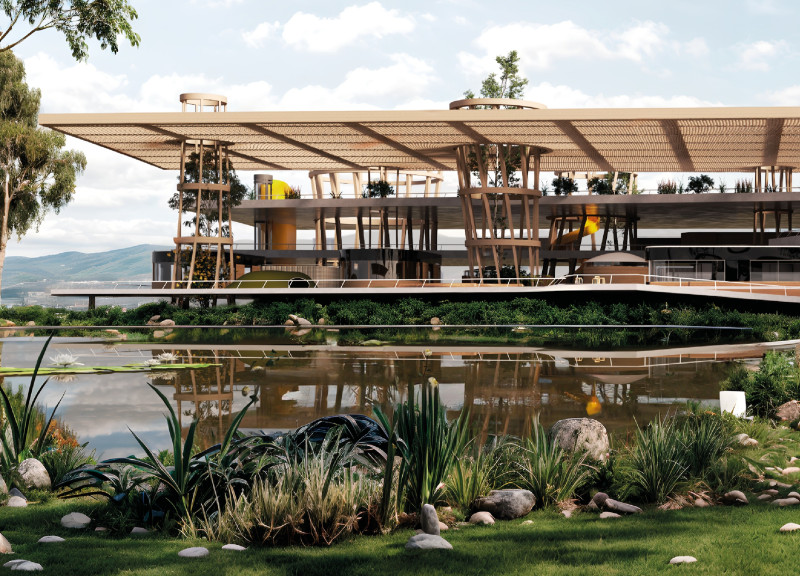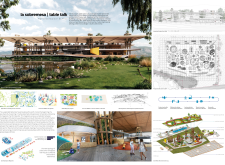5 key facts about this project
### Overview
La Sobremesa | Table Talk Agroecological School is situated in the periurban regions near the Sierra de Perija in Colombia. This educational facility is designed to foster community engagement and ecological awareness among its students. The concept is inspired by the Latin American tradition of table talk, emphasizing dialogue and collaboration in the learning environment. The architecture integrates with the surrounding landscape, aiming to create a strong sense of belonging while promoting collective educational experiences.
### Architectural Layout
The design prioritizes openness and inclusivity through a well-orchestrated layout centered around communal spaces. Key design elements include central gathering areas, which serve as focal points for interaction and collaboration among students and educators. Flexible classrooms feature movable partitions, accommodating a range of teaching methods and activities. Outdoor classrooms and gardens are thoughtfully integrated into the design, allowing for direct engagement with local ecology and enhancing the educational experience.
### Materiality and Ecological Integration
The project utilizes a selection of sustainable materials that reflect local vernacular practices. Guadua wood serves as a primary structural component due to its strength and renewability, while reinforced concrete provides structural stability. Green roof systems contribute to biodiversity and natural insulation, and large windows made of glass facilitate abundant natural light and visual connections with the outdoors. Additionally, innovative rainwater harvesting systems are incorporated to enhance resource management and minimize environmental impact, supporting both ecological education and sustainability initiatives within the school’s operations.



















































